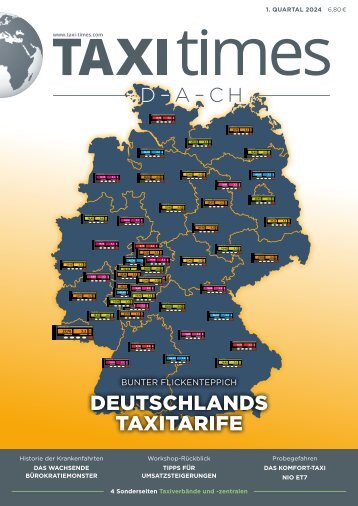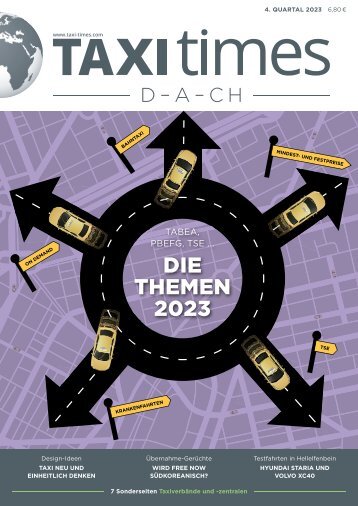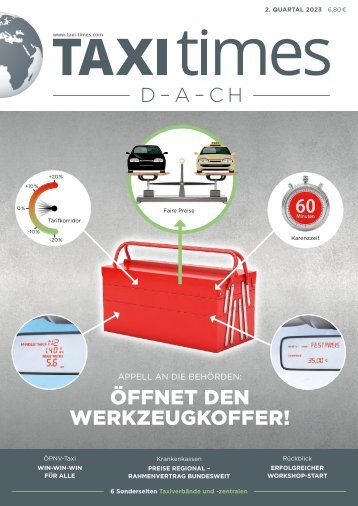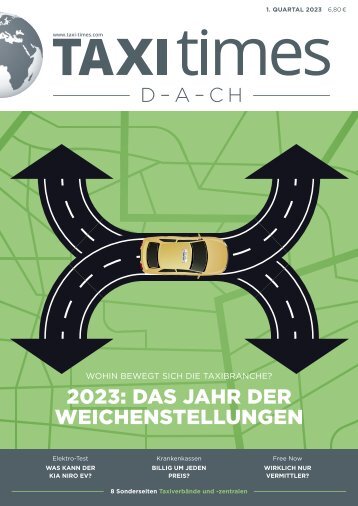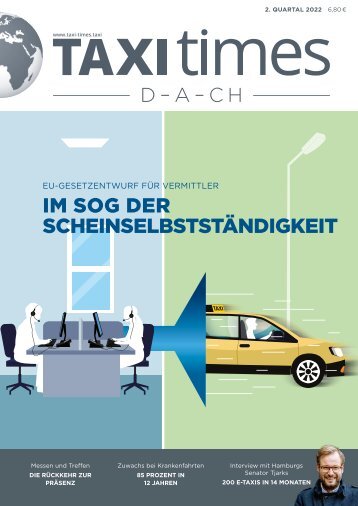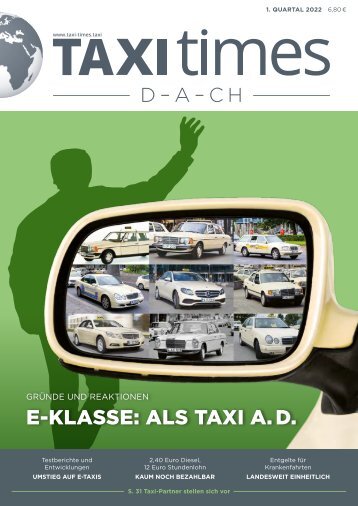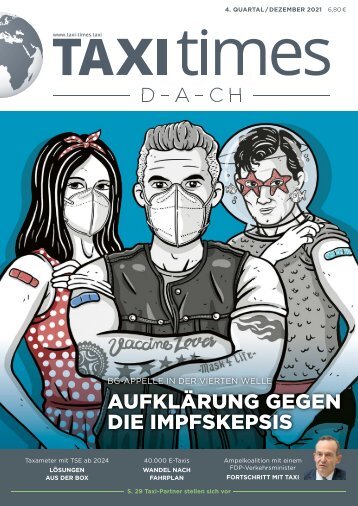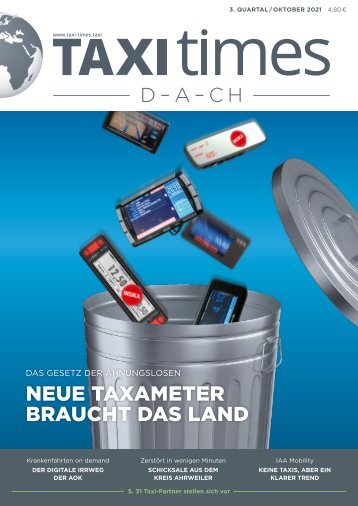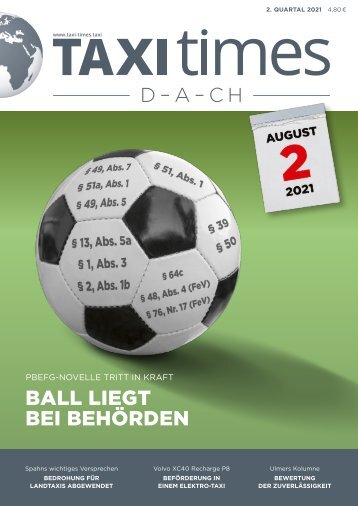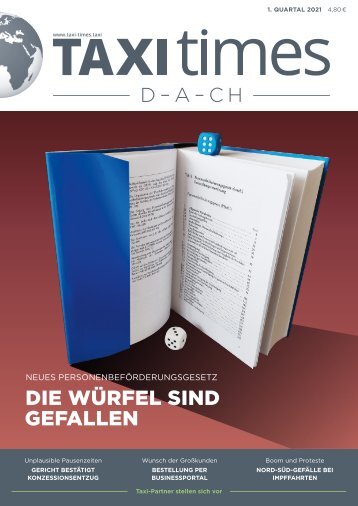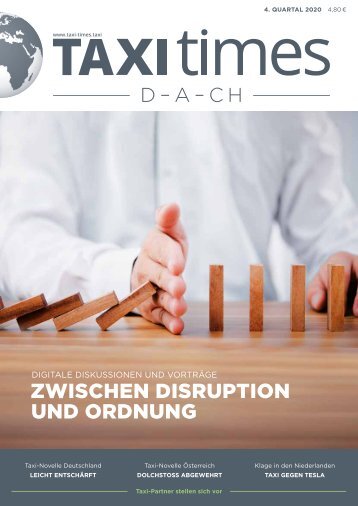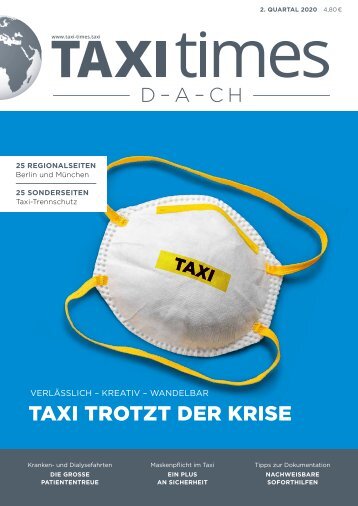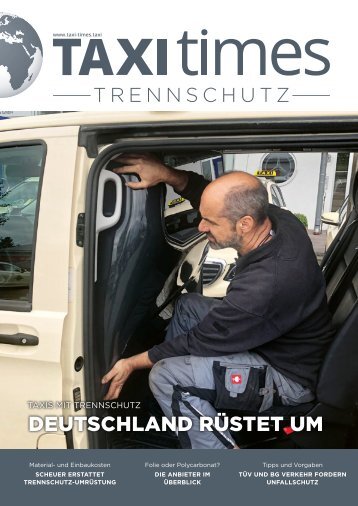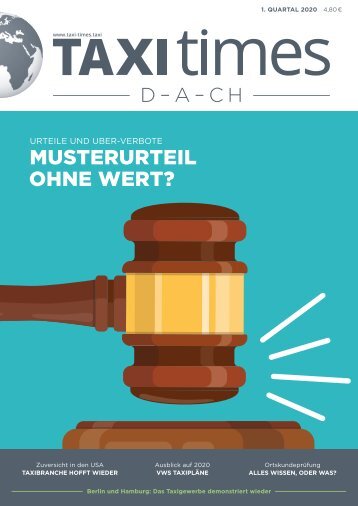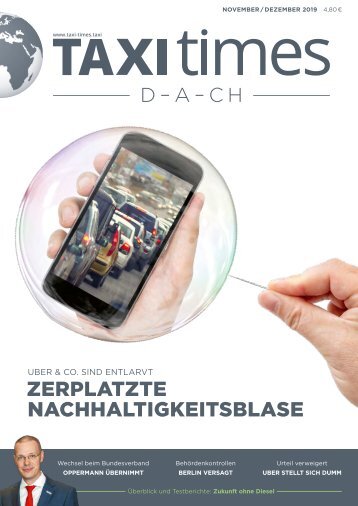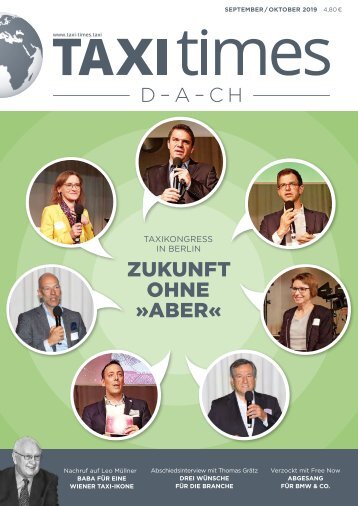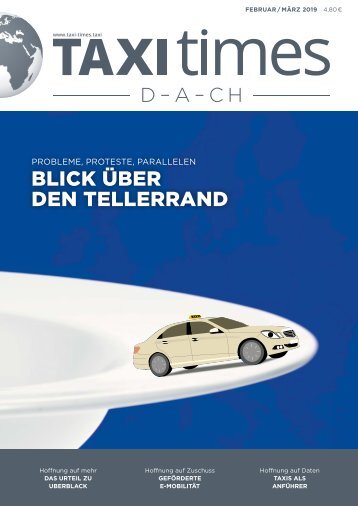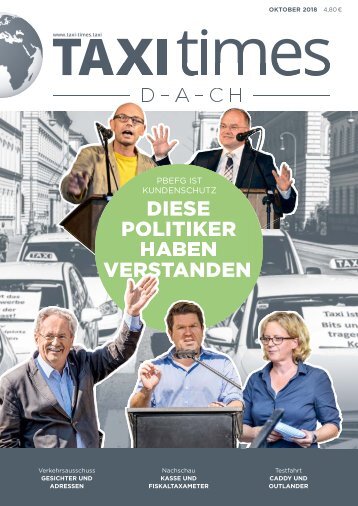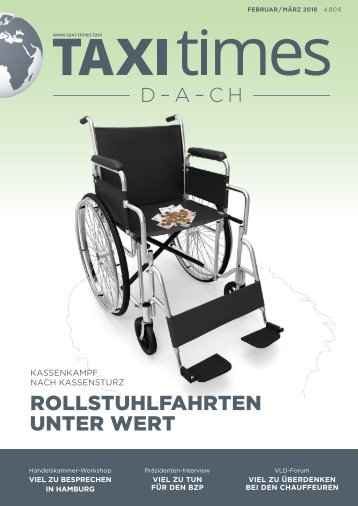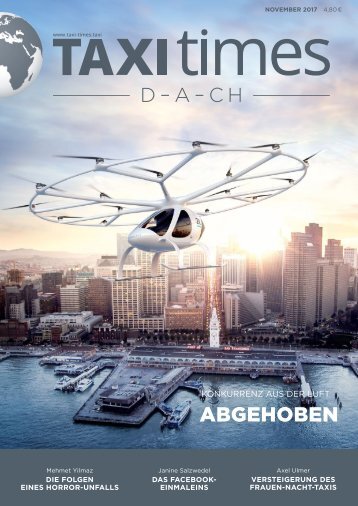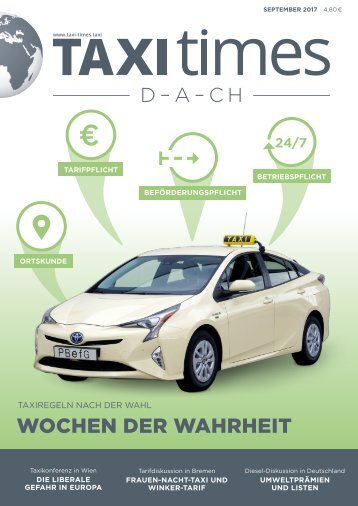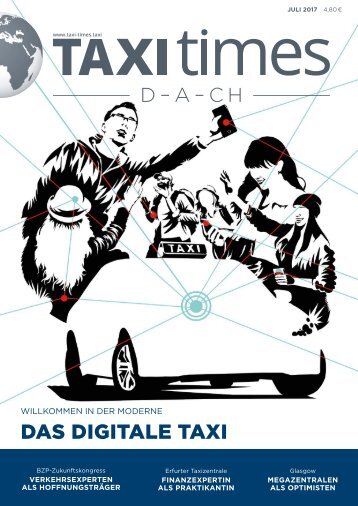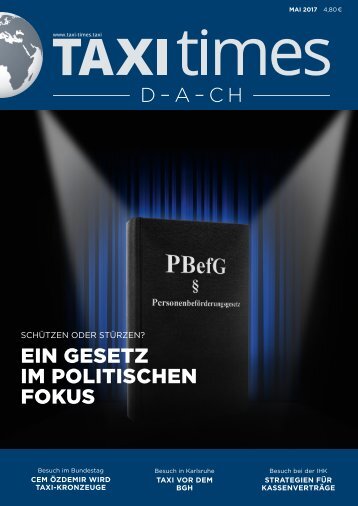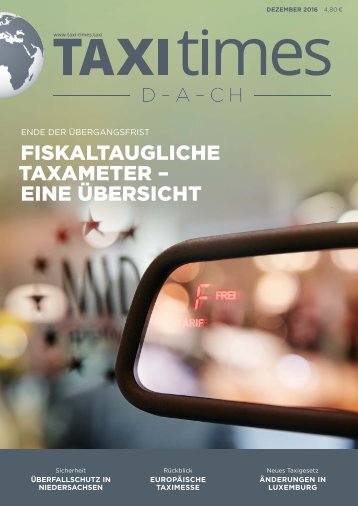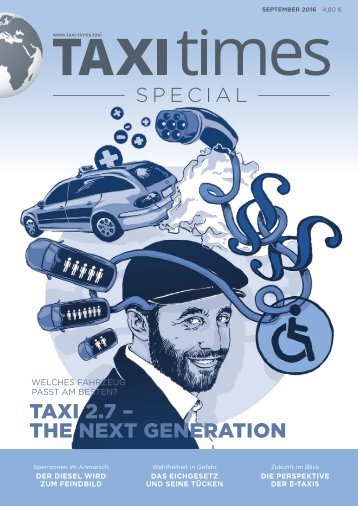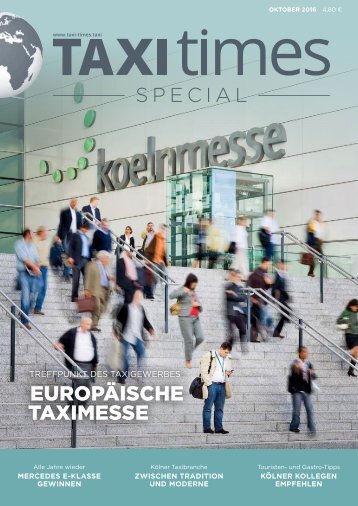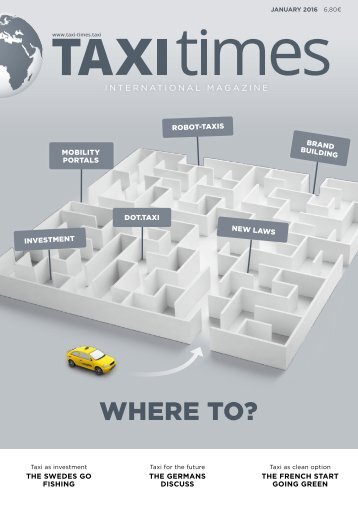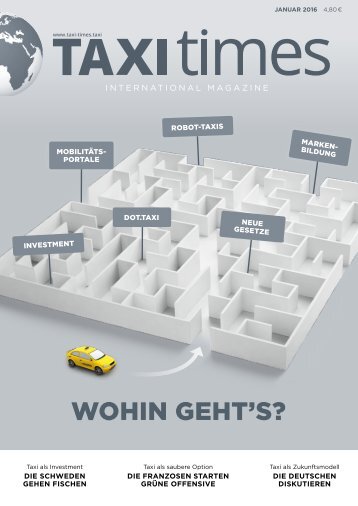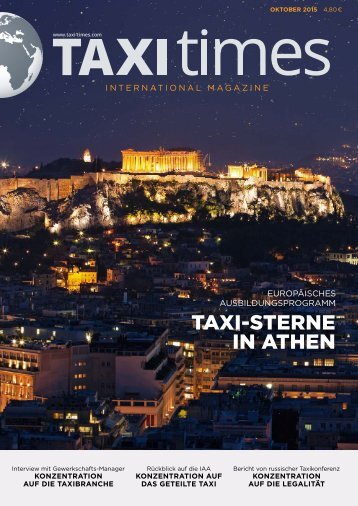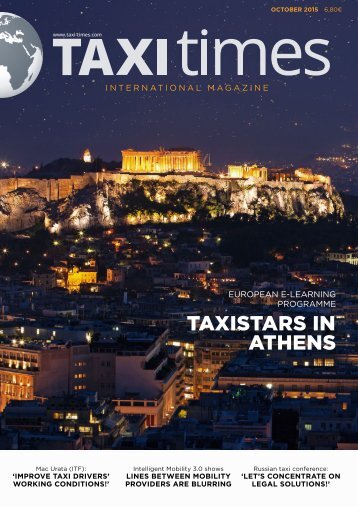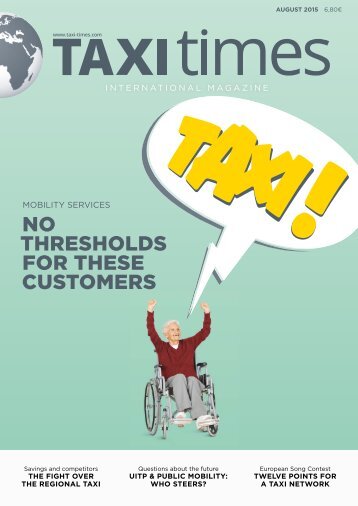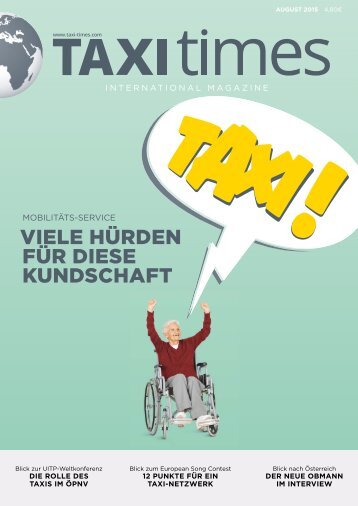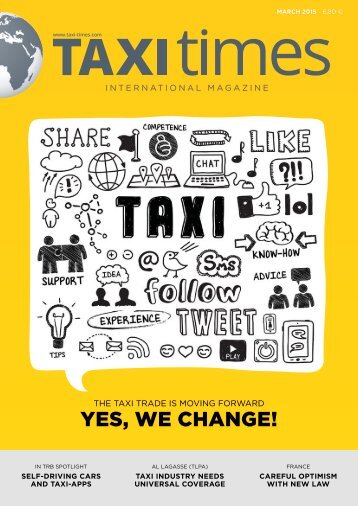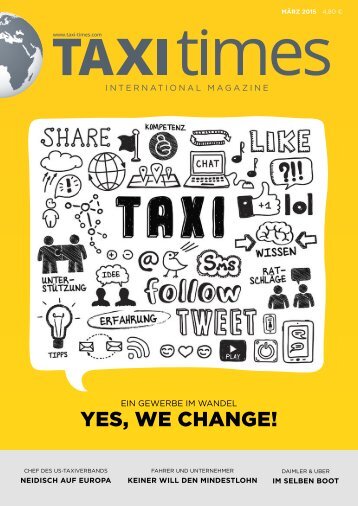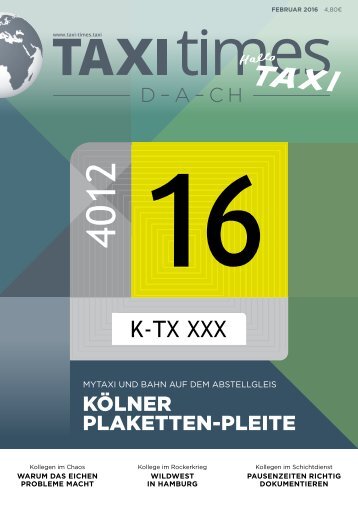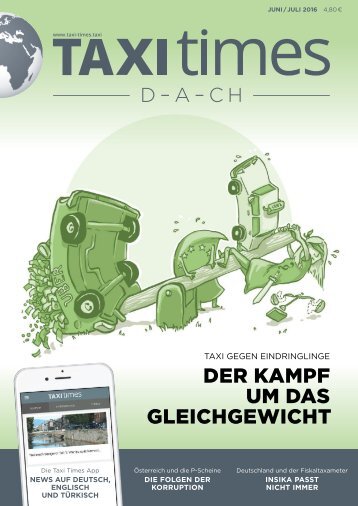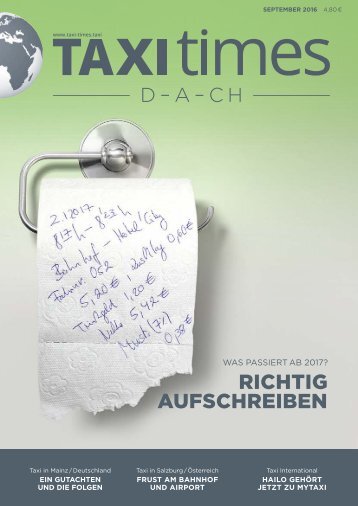Taxi Times International - March 2015 - English
- Text
- Uber
- Taxis
- Drivers
- Apps
- Berlin
- Mercedes
- Hamburg
- Vehicles
- Istanbul
- Lagasse
OUR COMMENT TAXI IN
OUR COMMENT TAXI IN CHANGE ATHENS TAXIS SUFFER UNDER FINANCIAL CRISIS THIS TRADE IS ABOUT SO MUCH MORE THAN APPS At the moment the taxi and FHV trade is mainly fire-fighting, but it is also inspired by various successes and new initiatives. Our quick visit to the US confirmed: TNC’s (Transportation Network Companies, what we routinely call ‘apps’) dominate the mobility industry. There perhaps even more than in the taxi and private hire industry here. The various discussions at the Annual Meeting of the Transportation Research Board showed the acute demand for seminars on apps and taxis, on apps CREDIT CARDS From 8 May, 2015, Berlin taxi drivers are required by law to accept credit cards. It is noteworthy that a law has to prescribe something that really in this day and age should be obvious to a service industry. While the taxi industry in some cities is still contemplating whether it should ever accept cashless payments, from the technology perspective suppliers are already making mobile payments as quick and efficient as possible. On page 18 we report on the integration of mobile payment in a taxi-app. By the way, only in Berlin. and autonomous driving and particularly on a deep gaze into the crystal ball. Where are we – as a taxi and FHV industry – going to be in one, two, five years from now? What can we, as operators and colleagues with a worldwide connection, learn from each other and develop as an approach to defend and improve our industry? Following the latest developments as we try to do at Taxi Times, sometimes a week is quite a long time. A moment of quiet reflection is not something that seems to be given to us or to the US taxi, limousine or paratransit operator – often busily fire fighting TNC’s. The same goes for the Taxi, Limousine and Paratransit Association (TLPA), where CEO Al LaGasse, in an unusually long interview, gave us his view on the state of ‘his’ industry, on the rise and development of the TNC’s and on new strategies developed and deployed by the trade. It was heartening to hear that foreign court cases involving TNC’s, examples of foreign industry initiatives and a fresh approach like GTN, really inspire colleagues in other countries. It’s also interesting to note that the same country which gave us ‘Fordism’ in the 20’s of the last century – a technique developed by car maker Henry Ford to simplify and split each job on the car-making line in the smallest and simplest possible part, just got its taxi industry refinement: ‘Uberisation’: if you apply the rules of Uber, many of us will no longer have jobs or careers in the taxi industry, but will be working a few hours for Uber, a few hours for another app and so on. Never for a classic working week and never for acceptable pay. Each driver will have to piece together various app-jobs to fill enough time to make enough money. Let’s not forget there are many topics which now tend to be put on the back burner; topics which used to be at the centre of the taxi world and we are increasingly losing track of: environmentally-friendly cabs and operations, taxi as efficient, safe and reliable public transport, taxidrivers as our ears and eyes whilst we sleep. Just to mention a few things. Jürgen Hartmann EDITOR Jürgen Hartmann and Wim Faber. Wim Faber EDITOR PHOTO: Gudrun Hartmann PHOTOS: Wim Faber, Neone Nederland BV The 20.000 taxi drivers in Athens work (much) more and earn less as a result of the Greek government’s austerity measures. That’s the outcome of a study. The drop of 20% in GDP, the rise of fuel prices by 50% and extremely reduced taxi-use are worsening working conditions, making the local taxi industry suffer. That’s the outcome of a study carried out by the National Technical University of Athens. Athens taxis, with a flag fall of € 1,19, a rate of € 0,68 per km and an average cost of € 3,16 per average journey not exactly expensive, used to be an affordable way to go to work, even compared to public transport. Now locals have not only stopped using taxis, but are even cutting public transport journeys. Daily income in the taxi industry is declining steadily, with drivers spending more time waiting (on average 3–4 hours) and doing less trips than before. Nowadays not even all Athens consumers would like newer and cleaner taxi vehicles. available shifts are filled in this highly regulated sector, with its powerful unions and its own members of parliament. In many areas of the Greek capital illegal taxi ranks have popped up. Roughly ten years ago the Olympic Games led to a complete modernisation of Athens’ taxi fleet. But because of the crisis, many of these vehicles have not been replaced in the meantime. Compared to the situation before the crisis, 80% of taxi-users are taking less taxis than before, 20% completely stopped using them. 40% of these users even took a taxi a few times a week, usually to or from work. But with this reduced use, taxi-customers (and especially tourists) find taxis more readily available, the fare not too high, drivers friendlier than before but the quality of the vehicles GREEK GOVERNMENT TO TAKE TAXIS Prime minister Tsipras and his cabinet are selling off its service car fleet. Instead of driving, the politicians will ride motorcycles – or take taxis! HALE – a complete range of high quality taxi products. Be part of our success story and call +43 662 43 90 11 - 0 www.hale-electronic.com merely ‘OK’. Newer and cleaner taxis are high on the wish-list of taxi-customers, just like lower fares and more accessible vehicles. Internet and app-availibility also play a part in the drop in taxi work. • wf -Connectivity Cab Tracking and Dispatching software taximeter Microtax®-06 THE ORIGINAL mirror taximeter SPT-02 completely integrated! NEWSTICKER TAXITRONIC NEDER- LAND RESTARTS AS NEONE NEDERLAND The introduction of the Boordcomputer Taxi (BCT), a complicated digital taxi computer in The Nether lands, has recently claimed its third victim: February 2nd, the owners of Taxitronic Nederland BV, filed for bankruptcy. The bankruptcy included two sister companies, Neone and roof sign maker Barclays. Mid-February the company restarted as Neone Nederland BV. In the lengthy BCT-process three of the four original certified BCT suppliers have now gone bust. April last year Taxamatic, run by taxi entrepreneur Albert Haars, hit the buffers and not much later Quipment hastily made a restart. Euphoria/Cabman is the only BCT-suppler which is still standing. wf Neone Nederland’s digital taxi computer registers working times and fares. taximeter-terminal TT-01 multiport thermal printer TPD-01 roof sign TRS 6 TAXI MARCH / 2015 7
- Seite 1 und 2: MARCH 2015 6,80 € www.taxi-times.
- Seite 4: PEOPLE ISTANBUL TAXI GALA Taxi Worl
- Seite 10: CHANGING TAXI TRADE CHANGING TAXI T
- Seite 14: CHANGING TAXI TRADE NEWS BRUSSELS G
- Seite 18: RADIO-CIRCUITS RADIO-CIRCUITS TAXI.
- Seite 22: GUEST COMMENTARY COMPETITION Future
- Seite 26: THE FINAL SUBSCRIPTION The ‘3 Tax
Unangemessen
Laden...
Magazin per E-Mail verschicken
Laden...
Einbetten
Laden...
